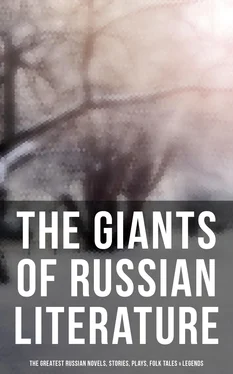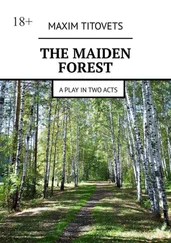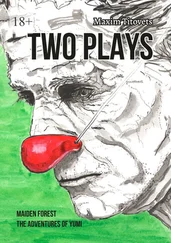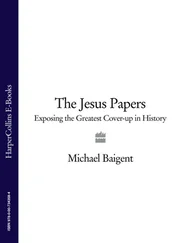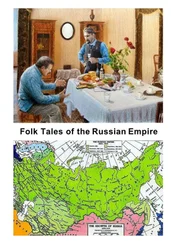In their primitive state the Slavs had this obvious differentiation from their Asiatic neighbours—though essentially pastoral they were not nomadic. The village, as a unit of politico-social life, had arrived with them at a high pitch of development, which involves the supposition of long-existing contributory causes, the herding together, namely, of a permanent community of human beings, dependent on each other for mutual convenience, security, and general well-being. The mir , commune, or village was in the first place the natural outcome of a patriarchal system other than nomad, the expansion of the primitive association of members of one or more families who had grown up together under the common attraction of a convenient water-supply, a suitable grazing ground, or a wood much haunted by honey-bees. 1The development of agricultural pursuits necessarily gave a greater measure of stability to village life, and the peasant insensibly rooted himself to that soil in which he had sown his crops and planted his fruit-trees. Thus far the life-story of the tribal Slavs travelled along familiar lines, but here it came to an abrupt halt. The village unit acquired a well-defined theory and practice of government, but it did not germinate into the town. The few townships that were to be found in Slavic lands owed their being for the most part not to any inward process of accumulation, but to extraneous and exceptional circumstances. While Teutonic peoples were raising unto themselves burgs and cities, and banding themselves in guilds and kindred municipal associations, the Slavs remained content with such protection as their forests and swamps afforded, such organisation as their village institutions supplied. The reason for this limitation in social progress was an organic one; in the Slav character the commercial spirit, in its more active sense, was almost entirely wanting. Trade by barter, of course, existed among them, but their medium of exchange had not got beyond the currency of marten and sable skins. The market, the wharf, and the storehouse were not with them institutions of native growth.
From their earth of forest, swamp, and stream, which paled them in from an outer world, and from the sky above, which they had in common with all living folks, the eastern Slavs had drawn inspirations for the thought-weaving of a comprehensive catalogue of gods. Their imaginations gave deific being to the sun, moon, stars, wind, water, fire, and air, but most of all they reverenced the lightning. In their dark, over-shaded forest homes it was natural that the sun, which exercised such mystic sway in the blazing lands of the Orient, should yield place to the swift, dread might which could split great trees in its spasm of destruction and shake the heavens with its attendant thunder. Accordingly the arch-god of Slavic myth was Peroun, in whom was personified the spirit of the lightning. Under the name of Svaroga (the different tribes probably had variant names for the same god, and sometimes, perhaps, varying gods for a common name) he was worshipped as the Begetter of the Fire and Sun Gods. The latter was sometimes known as “Dajh’bog,” but in old folk-songs the Sun is Dajh’bog’s grandchild. The Wind-God was designated “Stribog.” The personality of these nature-deities was not left entirely to the worshippers’ fancy, Peroun at least being represented in effigy by more than one idol, which conformed to the human pattern from which so few divinities have been able to escape. A slightly more advanced conception of the supernatural was embodied in the worship of Kolyada, a beneficent spirit who was supposed to visit the farms and villages in mid-winter and bring fertility to the pent-in herds and frost-bound seeds. The festival in honour of Kolyada was held about the 25th of December, the date when the Sun was supposed to triumph over the death in which Nature had gripped him and to enter on his new span of life.
Blended with Eastern mysticism there was, no doubt, in their religious ideas a considerable sprinkling of Northern magic. In their dark and lonely forest dwellings there was likely to be something more than a natural dread of that lurking prowler which stamped such an eerie impression upon the imaginations of primitive folks in many lands. The shambling form, the wailing howl, and the narrow eyes that gleamed wicked hunger in the winter woods gave the wolf a reputation for uncanny powers, and the old Slavic folk-songs clearly set forth a belief in wehr-wolf lore.
In the matter of disposing of their dead the Slavs of Eastern Europe had a variety of customs and usages, some of which were probably local practices of the different tribes. In general the body was burned and the bones enclosed in a small vessel, which was placed upon a post near the roadside. Grave-burial was also in vogue, hill-sides being chosen for that purpose. Drinking and feasting were usual accompaniments of the funeral rites, while the opposite extreme was sometimes exhibited by the slashing and scratching of the mourners’ faces in token of grief. 2
Thickly mingled with the Slav homesteads in the lake regions of Peipus, Ladoga, and the forest country stretching eastwards, were the outlying villages of the Finns, who seem to have lived in harmony with their alien neighbours without at the same time showing the least tendency towards a fusion of national characteristics. Branches of the same people, Tchouds and Livs, occupied the lands of the Baltic sea-board on the north-west. South of these, wedged in between the Slavs of Poland and those of the east, in the marshy forest-lands of the Niemen basin, were the Lit’uanians, a people of Indo-European origin, who were divided into the sub-tribes of Lit’uanians, Letts, and Borussians (Prussians). Of doubtful affinity with the first-named were the Yatvyags, a black-bearded race dwelling on the extreme eastern limit of the Polish march. The Lit’uanians were even more ill-provided with towns and strongholds than their Slav neighbours, but they had at least a definite system of tribal government, remarkable for the division of the sovereign power between the prince ( Rikgs ) and the high-priesthood, the former having control of outside affairs, including the important business of waging war, the latter administering matters of justice and religion. The gods of the Lit’uanians were worshipped under the symbolism of sacred trees, and the religious rites included the putting to death of deformed or sickly children; this was enacted, not with the idea that bloodshed and suffering were acceptable to the Higher Powers, but rather because the latter were supposed to demand a standard of healthy and physical well-being on the part of their worshippers. 3
In the lands lying to the south and south-east, where the forests gave way bit by bit to the open wolds of the steppe country, the Slavs had for neighbours various tribes of nomads, for the most part of Turko-Finnish origin, and these completed the encircling band of stranger folk by which the primitive forest dwellers were shut in from the outside world. At this yonder world it is now necessary to take a glimpse.
Europe towards the middle of the ninth century was still simmering in a state of semi-chaos, out of which were shortly to be evolved many of the national organisms which have lasted to modern times. Charles the Great, by the supreme folly of dividing amongst his three sons the empire he had so carefully built up, had to a great degree undone the work of his life, and political barriers are rather difficult to trace after the partition of Verdun (843), though in the dominions assigned to Charles II. some semblance of the later kingdom of France may be traced. Germany was in a transition state; the strong hand which had established dependent and responsible dukes and counts in the various Teutonic provinces—Saxony, Franconia, Swabia, Bavaria, and Karinthia—had been withdrawn, and as yet these princes had not erected their fiefs into independent hereditary duchies. Scarcely tamed and civilised themselves, the frontier districts of the east were bordered continuously by Danes, Wends, Czechs, Avars, and Slavonians, ever ready to make hostile incursions upon their territory. Hamburg in those days stood as a frontier town, almost an outpost in an enemy’s country, and formed with Paderborn and Bremen the high-water mark of the Frankish expansion on the north-eastern marches.
Читать дальше
